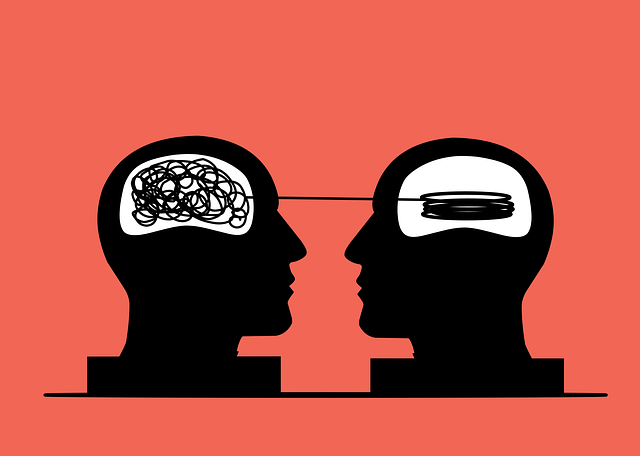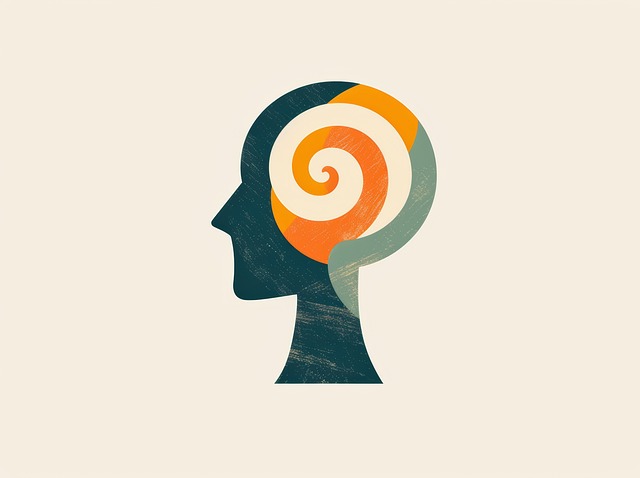Coping skills development is crucial in therapy for young children with codependency issues, addressing emotional challenges and fostering resilience. Early identification of codependency, through recognizing signs like excessive reliance or fear of being alone, enables effective interventions focusing on self-care and relationship boundaries. Therapy incorporates activities like mindfulness and creative arts to encourage emotional expression, reduce mental illness stigma, and promote healthier relationships. Caregivers play a vital role by incorporating therapy into routines, normalizing mental wellness discussions, and modeling healthy coping strategies, empowering children to develop robust coping mechanisms for life's challenges.
Coping skills development is a vital aspect of young children’s growth, enabling them to navigate life’s challenges and emotions effectively. This article explores the significance of these skills in early childhood and delves into addressing codependency issues, a potential barrier to healthy development. We discuss signs of codependency in kids, its causes, and provide practical strategies for parents and caregivers to foster resilient coping mechanisms. Additionally, we highlight the role of therapy in treating codependency specifically in young children, offering hope and guidance for concerned parents.
- Understanding Coping Skills and Their Significance in Young Children's Development
- Identifying Codependency in Kids: Signs and Potential Causes
- Strategies for Parents and Caregivers to Foster Healthy Coping Mechanisms
- The Role of Therapy in Addressing Codependency Issues in Young Children
Understanding Coping Skills and Their Significance in Young Children's Development

Coping skills are essential for young children’s overall development and mental wellness. These skills enable them to navigate life’s challenges, manage their emotions, and adapt to stressful situations. In the context of therapy for young children, especially those dealing with codependency issues, teaching effective coping strategies is a cornerstone of treatment. By learning these skills, children can develop resilience, improve their emotional intelligence, and foster healthier relationships.
The significance of coping skills cannot be overstated, especially in today’s fast-paced world where public awareness campaigns for mental health emphasize the importance of early intervention. Through various activities and techniques, such as mindfulness exercises or creative arts therapy, Mental Wellness Podcast Series Production can contribute to mood management and overall growth. These strategies empower young individuals to express themselves, regulate their emotions, and build a positive self-image, all of which are crucial for breaking the cycle of codependency.
Identifying Codependency in Kids: Signs and Potential Causes

Identifying codependency in young children is crucial for their healthy development and well-being. Codependent behavior can manifest as excessive reliance on others for validation, a fear of being alone, or difficulty setting personal boundaries. In therapy for young children, professionals look for signs such as an intense need for approval, struggle with independence, and trouble expressing emotions. These patterns might arise from various causes, including early exposure to traumatic events, inconsistent caregiving, or high-stress family environments.
Building empathy within these situations is key, employing strategies that encourage self-care practices among children. Mental illness stigma reduction efforts play a vital role too, fostering an environment where kids feel safe discussing their feelings and seeking support when needed. By implementing appropriate coping skills development, therapy for young children can help break the cycle of codependency and promote healthier relationships and emotional resilience.
Strategies for Parents and Caregivers to Foster Healthy Coping Mechanisms

Teaching young children healthy coping mechanisms is a vital part of their overall development and can help them navigate life’s challenges with resilience. Parents and caregivers play a crucial role in fostering these skills, especially when it comes to addressing codependency issues early on. One effective strategy is incorporating therapy for young children into their daily routines; this could be through art therapy, music therapy, or simple conversations about emotions. By normalizing discussions around mental wellness, caregivers can help children understand and express their feelings.
Nurturing inner strength development in kids involves encouraging them to identify and manage their emotions healthily. Caregivers can model this by sharing their own coping strategies while teaching problem-solving skills. It’s also essential to create a safe space where children feel comfortable discussing their struggles without fear of judgment, which helps reduce the stigma around mental illness. Through these practices, parents and caregivers can empower young ones to develop robust coping mechanisms, ensuring they grow into resilient individuals capable of tackling life’s obstacles head-on.
The Role of Therapy in Addressing Codependency Issues in Young Children

Therapy plays a pivotal role in addressing codependency issues in young children. Through structured sessions, therapists can help young minds develop healthy coping mechanisms and foster positive thinking. Codependency often arises from early life experiences, such as inconsistent caregiving or emotional neglect, leading to an unhealthy reliance on others for validation and self-worth. Therapy intervenes by teaching these children conflict resolution techniques and providing a safe space for them to express their emotions. This process facilitates emotional healing, enabling kids to build independence and healthy relationships.
Targeted interventions focus on enhancing self-esteem, improving communication skills, and instilling resilience. By learning effective coping strategies, young individuals can navigate challenging situations without resorting to codependent behaviors. Moreover, therapy equips them with the tools to recognize and set personal boundaries, promoting a sense of autonomy and overall well-being. Thus, therapy serves as a transformative agent, empowering young children to break free from codependency and embrace healthier emotional healing processes.
Coping skills development is a vital aspect of young children’s growth, enabling them to navigate life’s challenges and build resilience. By recognizing codependency issues early on, parents and caregivers can implement effective strategies to foster healthy coping mechanisms. This includes utilizing therapy for young children struggling with codependency, providing them with the tools to express emotions, set boundaries, and develop a strong sense of self. Through tailored interventions, therapy can help break unhealthy patterns, allowing kids to thrive and lead fulfilling lives.














